Dan Guild is a lawyer and project manager who lives in New Hampshire. In addition to writing for Bleeding Heartland, he has written for CNN and Sabato’s Crystal Ball, most recently here. He also contributed to the Washington Post’s 2020 primary simulations. Follow him on Twitter @dcg1114.
Those who follow polling closely have noticed a surprising shift in recent findings. Curtis Dunn of NBC News recently wrote, “Waning enthusiasm from Black voters presents an inflection point for Biden’s campaign.” Politico’s Steven Shepard also covered “warning signs” for Democrats about Black voters. The political consulting firm Catalyst, which I respect, suggested that Democratic support among African Americans fell in the 2022 midterms.
This table compares exit poll data (I used the Pew validated voter exit poll for 2016 to 2022) with an average of high-quality polling in the last 45 days of the campaign. The results are shocking. Recent polling averages indicate a 35-point shift in margin among African Americans. If that is happening, it is an enormous development in American politics. The African-American vote is vital to Democratic success in key battleground states such as Georgia, Michigan, and Pennsylvania.
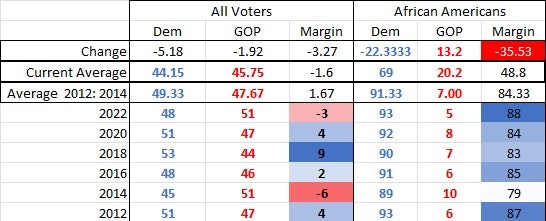
But is this shift in public opinion real?
I have been tracking the African American margin in polls on a consistent basis since 2016, but my interest in this subject goes back to polling from 2004, which seemed to underestimate Democratic performance. This next table compares pre-election surveys of Black voters in 2016, 2020, and 2022 with numbers from the Pew Exit Poll.

As the table shows, pre-election surveys have consistently underestimated the Democratic margin among African Americans. In fact, every poll that released cross-tabs in 2016, 2020, and 2022 underestimated the Democratic margin.
Even more interesting, the amount by which polls underestimated the Democratic margin has gone up over time. The polling average from 2022 missed the final margin by a whopping 27 points.
Note the recent polling average and the 2022 average. When you compare the average to the 2022 result, the shift among African Americans appears enormous. However, when you compare recent numbers to poll numbers from 2022, the change is far less dramatic, and arguably within the margin of error given the small sample sizes we are talking about.
This phenomenon gets even more interesting when you compare individual pollsters’ current numbers to their 2022 findings. Emerson is one of the most prolific pollsters today. The latest Emerson nationwide survey found Joe Biden leading Donald Trump among African Americans by 65 percent to 18 percent. That’s nearly identical to their last generic ballot poll before the 2022 midterms, which had the Democrats leading among African Americans by 67 percent to 20 percent. That survey underestimated the actual Democratic margin by 26 points.
Here is the complete list. African Americans are small subsamples in most surveys, so it is not surprising to see the numbers change from poll to poll.
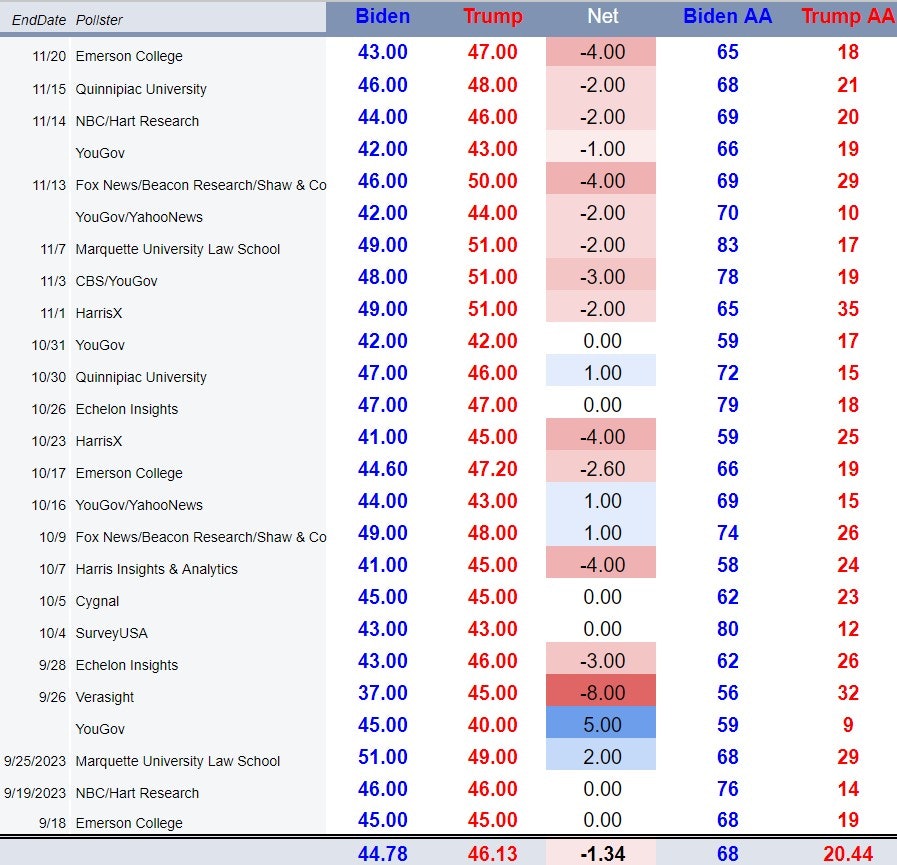
None of the above should be taken as proof that Democratic candidates do not have a problem with Black voters. But I would be extremely skeptical that any change is very large. Of course, given how dependent the Democrats are on African-American voters in key battleground states, they should take nothing for granted.
Here is the the data from the 2016 presidential election.
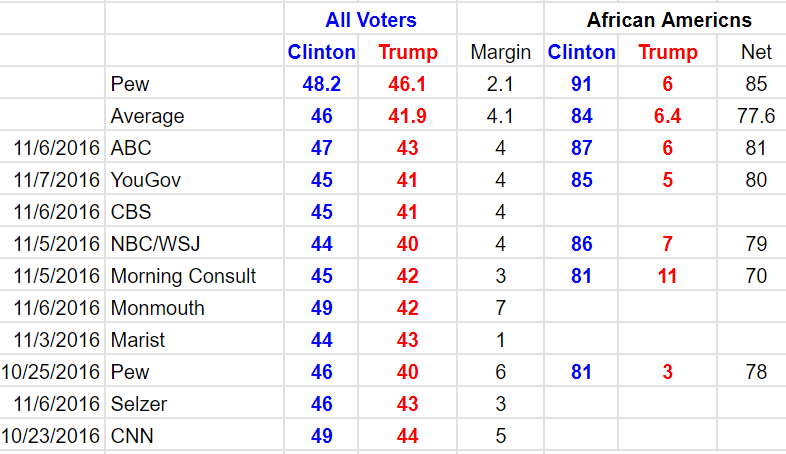
Here are the numbers from 2020.
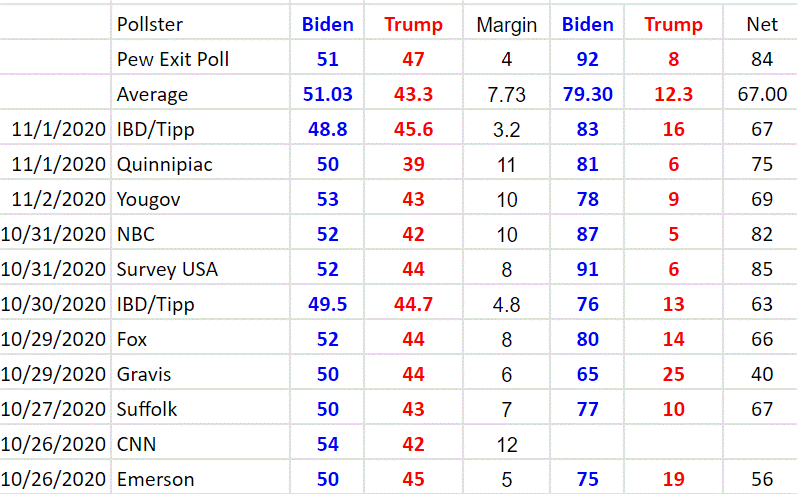
And these are the 2022 numbers.
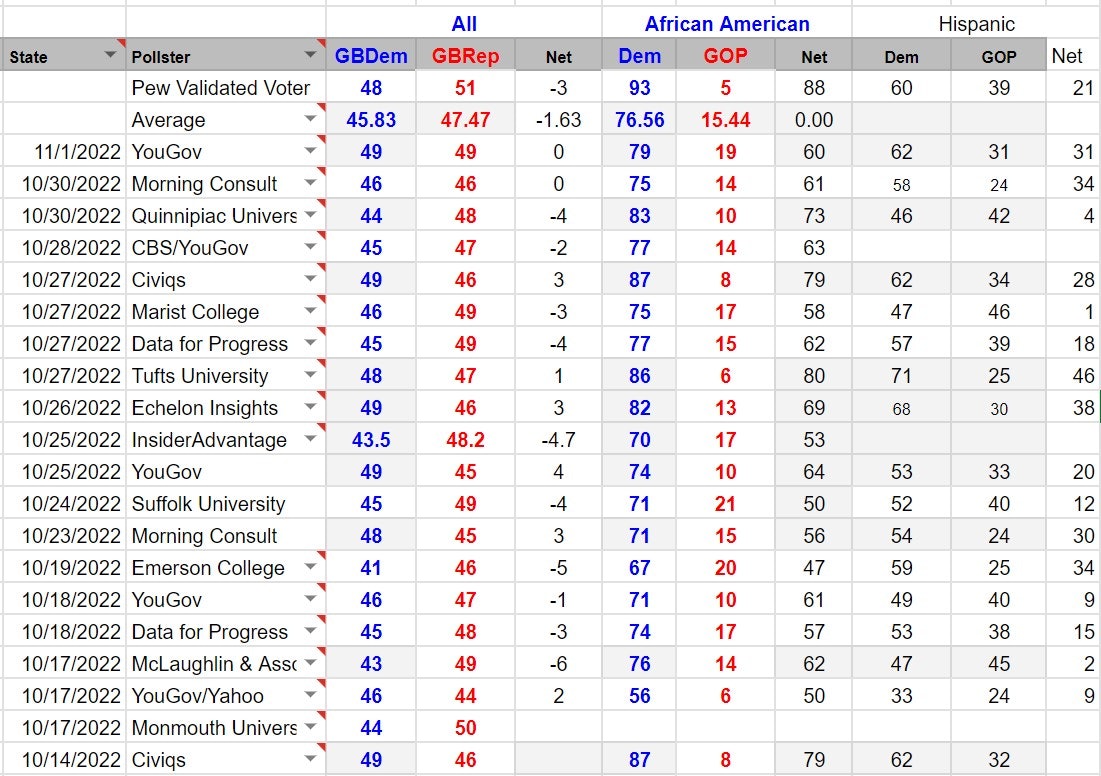
Top image: President Joe Biden greets guests at an Americans with Disabilities Act reception on October 2, 2023, on the South Lawn of the White House. Official White House Photo by Adam Schultz first published on the White House Flickr account.

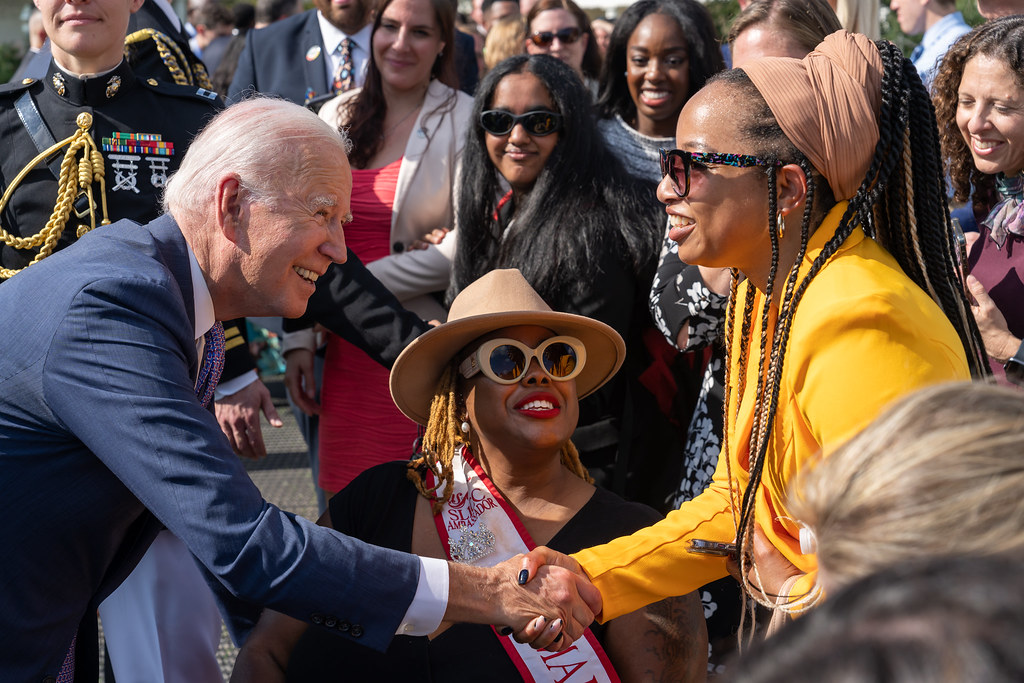
1 Comment
failures on protecting voting rights, police reform, student loans, etc
as Carville laments the real issue is poor turnout
dirkiniowacity Wed 29 Nov 10:32 AM